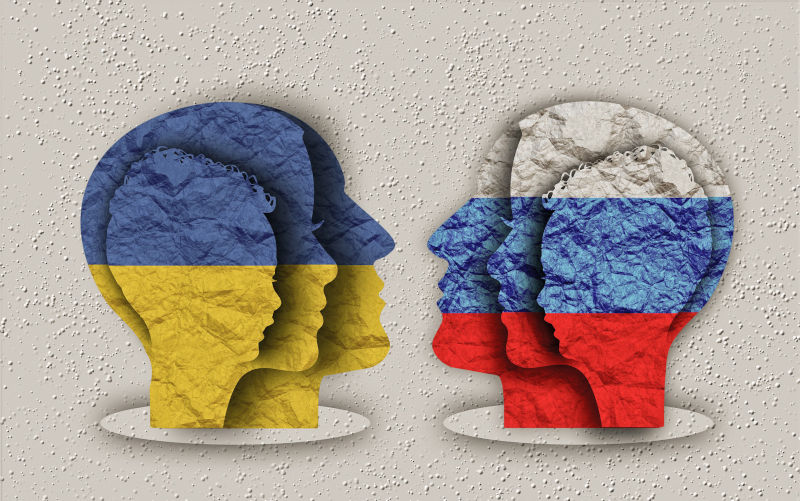Peace scenarios for Ukraine via peoples tribunals
May 16, 2022
_In November 1966, regarding the conduct of the Vietnam war, the philosopher, anti-war activist Bertrand Russell founded a Peoples Tribunal to inform public opinion and arouse opposition to war.
_
A few days ago, Richard Falk, the polymath Professor of international relations at Princeton followed in Russells footsteps. Richard Falk argues for Peoples Tribunals to confound the war-like West v. Russia accounts of the Ukraine catastrophe, and instead find space to picture scenarios for peace.
The dangers that the Ukraine conflict could widen into a war from which no-one survives, make proposals for dialogue about peace a matter of urgency. Alleged victory by one side never contributes to a lasting peace, yet by piling arms into Ukraine, the US and its allies seem intent on a victory to humiliate Putin and cripple a Russian economy, which might simultaneously witness the destruction of Ukraine.
In different countries, civil society tribunals would give a voice to a diverse public, not just to existing peace groups. That goal differs from a Russell tribunal presided by prestigious individuals to which other significant players were invited to give evidence.
Falks timely proposals outline why civil society tribunals are needed and what they would address.
Breaking the silence about recourse to diplomacy can be coupled to appraisals of the global structure of power. Media claims that this current war is only about the defence of Ukrainian sovereignty need to be replaced by peace scenarios which ask why allow anyone to lose a life, why be so unquestioning about the arms industry, why not speak the language of compromise and non-violence?
By holding tribunals, the thinking, the language, conversations and public understanding of the Ukraine war could change. A need for peace promoting initiatives is obvious. Potential world wide famine looms. Falk argues that the states most vulnerable to supplies of food and energy have hardly any influence in the formation of global policy. Destruction of planet earth accompanies war. Policies to combat global warming have been postponed. Worship of coal to pollute the atmosphere but fire power stations has been revived. The human and environmental costs of war are enormous yet the current conflict is presented as a likely fight to the last death. Of whom?
These are topics for tribunals which could multiply, which could express peoples dismay and desire for peaceful alternatives, before it is too late.
Peoples tribunals could be more likely to generate peace scenarios than a UN eroded by powerful countries refusal to comply with the UN Charter, and somehow marooned between the rules of international law and the fundamentals of geopolitics.
The stakes for peace are high. Even small scale deliberations could consider the different levels of war identified by Falk: the Russia v. Ukraine contest; the US v. Russia polarisation; western Ukraine v. the Dombas. These distinctions avoid the mainstream medias simple depiction of the war as merely a struggle over Ukraines sovereignty.
Searching for truth is another massive task. Tribunal chairs would have to ask, what do we know and how do we know it? Without a struggle for truths, the Russian dictators fake news, Trump like claims that lies can be true, and conspiracy theories spewing from several walks of life make it difficult to identify the realities required to achieve peace. Brave activists from several countries can speak of experiences far different from official policies and claims.
Learning to live together, enjoying doing so, usually provides enthusiasm for peace with justice. The chemistry which foments peace is not confined to rational arguments. Music, dance, poetry and other art forms contribute to the notion of a common humanity. In that chemistry, Russian, Ukrainian composers, novelists and poets have contributed as much as their peers from many other cultures, not just the Anglosphere. Shostakovich can be coupled to Beethoven, Bob Dylan with Pussy Riot, Maya Angelou to Yevgeny Yevtushenko. The inspiring Australian Aboriginal poet Oodgeroo Nunucaal (Kath Walker) has crafted the vision that could end any war. Im for humankind not colour gibes,Im international never mind tribes, Im international never mind place, Im for humanity all one race.
As with any theatre which reflects threats to existence, a peoples tribunal could take many forms, each yearning to celebrate life. We may not be imitating Bertrand Russell on Vietnam. but on peace promoting responses to the Ukraine carnage, at least Richard Falk has launched life enhancing ideas.

